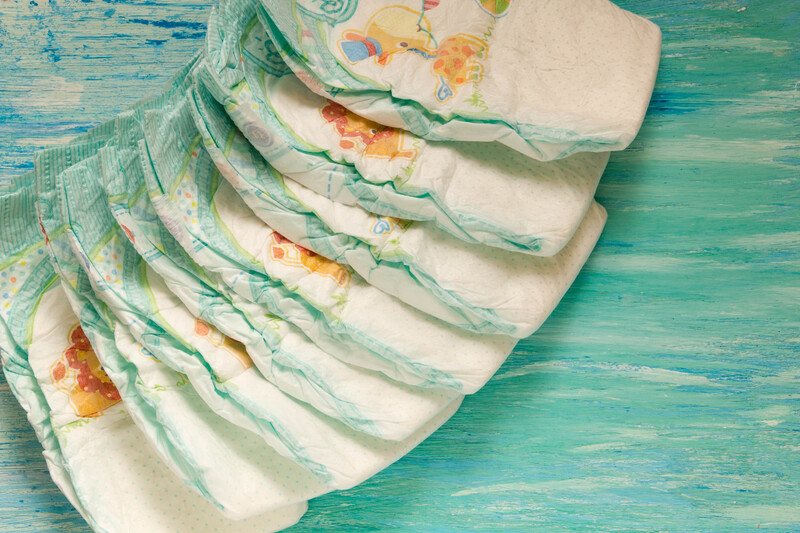What to Do With Old Cookware: Disposal and Recycling Tips
When your pots and pans become warped, scratched, or just too outdated for your cooking needs, getting rid of them properly can be confusing. What to do with old cookware isn't simply a matter of tossing them in the trash. In today's eco-conscious world, it's essential to consider sustainability by recycling, reusing, or properly disposing of your old pots and pans. In this comprehensive guide, we'll walk you through a variety of old cookware disposal and recycling tips to help you make the best choice for your kitchen and the environment.
Why Not Just Throw Old Cookware Away?
It can be tempting to simply dump your aged pans, skillets, or nonstick pots in the bin, but this isn't the best solution for several reasons:
- Environmental Concerns: Most cookware is made of metals like aluminum, stainless steel, or cast iron which take hundreds of years to degrade in a landfill.
- Chemicals and Hazards: Old nonstick cookware may contain chemicals such as PFOA and PTFE, which shouldn't end up in regular landfills.
- Recyclable Materials: Many cookware items can be recycled, helping to conserve valuable resources.
Understanding the composition of your old pots and pans. Not all cookware is created equal. Some pieces are almost entirely recyclable, while others need special handling due to nonstick coatings or plastic handles. Below, we explore smart and sustainable ways to dispose of old cookware and suggestions for recycling.
Types of Cookware and Their Disposal Options
1. Stainless Steel
Stainless steel cookware is durable and highly sought after by scrap metal recyclers. Here's what you can do:
- Recycle: Most recycling centers accept stainless steel. Remove any non-metal components like plastic handles before recycling.
- Donate: If they're still functional, donate them to charity, a thrift shop, or a local kitchen in need.
2. Aluminum Cookware
Aluminum pots and pans are lightweight and can also be recycled. Be sure to:
- Check for Coatings: Nonstick and painted surfaces can complicate recycling. Contact your recycling facility for instructions.
- Scrap Yards: Many scrap metal buyers will take aluminum cookware -- just make sure it's clean.
3. Cast Iron
Cast iron pans and skillets have a long life and can often be restored. If not, they're perfect for metal recycling:
- Restore and Reuse: Old rusted cast iron can be re-seasoned and reused for generations.
- Recycle: If restoration isn't possible, they can be taken to a scrap yard.
4. Copper Cookware
Copper bottomed pans and pots are often accepted at scrap yards for a good price. Remember:
- Separate Materials: Remove steel fittings or handles to maximize recycling value.
- Repurpose: Old copper can be crafted into decorative items or sold to collectors.
5. Nonstick & Teflon-Coated Cookware
This is the trickiest cookware to recycle due to the chemical coatings involved. Here's what you need to know:
- Check Manufacturer Programs: Some brands (like Calphalon or TerraCycle) have cookware take-back or recycling programs.
- Hazardous Waste: If your area doesn't offer recycling for nonstick pans, ask your local hazardous waste center if they'll accept them.

The Step-by-Step Guide to Disposing and Recycling Old Cookware
To make the process easier, follow these simple steps for disposing of your old pots and pans in an eco-friendly way:
Step 1: Assess Condition
Are your pans beyond use, or could they be cleaned and donated? If they're still functional, consider giving them away before opting for recycling or disposal.
Step 2: Separate Non-Metal Parts
Many pans have rubber, silicone, or plastic handles. Remove these wherever possible, as they may not be recyclable with the metal body.
Step 3: Clean Thoroughly
Scrape out food residue and wash your old cookware. Scrap yards and recycling centers require metal items to be clean.
Step 4: Find a Local Recycling Center or Scrap Yard
- Check the Earth911 recycling locator for facilities near you.
- Contact your municipal recycling program to confirm what types of metal they accept.
- Some curbside recycling programs accept metal pots and pans if you remove non-metal parts.
Step 5: Utilize Manufacturer Programs
Many old cookware recycling programs are manufacturer-led. Brands such as GreenPan, Calphalon, and Farberware may accept used items for safe recycling. Visit their websites or customer service pages for details.
Step 6: Donate or Repurpose
- Thrift Stores: Donate gently used cookware to local Goodwills or Salvation Army outlets.
- Community Kitchens: Soup kitchens and shelters often need cookware.
- Creative Upcycling: Turn old pans into planters, wall decor, or birdbaths. This can be a fun DIY project!
Where to Donate Old Pots and Pans
If your cookware is still in usable condition, donating gives it a new lease on life. Here are a few places to consider:
- Local Charities and Nonprofits: Many charities operate thrift shops that accept cookware donations.
- Soup Kitchens and Homeless Shelters: These organizations are always looking for additional cookware.
- Community Centers and Schools: Especially those with cooking programs or classes.
- Online Sharing Platforms: Use Facebook Marketplace, Freecycle, or Craigslist to offer items for free.
Always call ahead to confirm that your donation is welcome and check if any cleaning is required beforehand.
How to Recycle Cookware With Special Coatings
Many modern cookware sets have nonstick, enamel, or anodized coatings that complicate traditional recycling. Here's what to do:
- Contact Your Local Recycling Facility: Ask if they accept coated cookware. Policies can vary.
- Remove What You Can: Take off plastic handles or lids to leave as much recyclable metal as possible.
- Use a Take-Back Program: Some cookware manufacturers or specialized recyclers accept nonstick pans even with coatings.
- Consider Upcycling: Use as garden markers, storage bins, or organize your shed or garage tools.
Clever Ways to Repurpose & Upcycle Old Cookware
Not all old pots and pans need to leave your home! Here are a few fun and creative ideas to upcycle old cookware into something new:
- Planters: Fill old pots with soil and use them for herbs or flowers.
- Wall Decor: Hang interestingly shaped pans on your kitchen wall for a rustic, vintage look.
- Bird Baths or Feeders: Shallow pans can attract feathered friends to your garden.
- Organizers: Use deep pots as magazine racks or storage bins in closets and garages.
- Clock Faces: Turn a round frying pan into a quirky kitchen clock!
What About Lids and Handles?
Don't forget about your cookware accessories! Glass lids can sometimes be recycled with glass, but most facilities require them to be separated from the metal. Plastic or wooden knobs and handles usually go in the trash unless your recycling center says otherwise. Try to remove all non-metal parts before recycling.
What Not to Do With Old Cookware
- Do Not Burn or Incinerate: Burning cookware, especially those with nonstick coatings, can release toxic fumes.
- Don't Dump Illegal Waste: Do not toss large amounts of metal waste in public trash bins or natural areas.
- Do Not Place Non-Approved Metals in Curbside Recycling: Many municipal programs only accept specific metal types, so always check first.

Frequently Asked Questions About Old Cookware Disposal
Can I put pots and pans in curbside recycling?
Usually no, because most curbside recycling programs are not equipped to handle cookware due to size and material complexity. Always check with your local facility first.
Are nonstick coatings hazardous?
Some older nonstick pans contain chemicals that are considered harmful if released into the environment. This means they require special handling and should never be incinerated or disposed of with general waste.
Does Goodwill accept old cookware?
Most Goodwill and secondhand thrift stores accept cookware that is clean and in usable condition. Check your local branch for donation guidelines.
Can I recycle cookware with a broken handle or damaged surface?
Yes! Even if your pan is damaged, the metal is still recyclable. Just remove non-metal components as best you can.
Conclusion: Sustainable Solutions for Old Cookware
Learning how to dispose of old pots and pans responsibly is a small change that can have a big impact on the environment. Whether you opt for recycling, donating, or upcycling, make sure your choices are sustainable and safe. When in doubt, always double-check recycling guidelines in your area and consider reaching out to manufacturers for take-back programs.
Ready to clear your cabinets? Remember:
- Recycle metals where possible.
- Donate usable cookware to those in need.
- Get creative with DIY upcycling projects.
- Never throw toxic items in the trash.
By handling your old cookware responsibly, you're helping protect our environment, support local communities, and promote a cleaner future. The next time you upgrade your pans, you'll know exactly what to do with the old ones!
